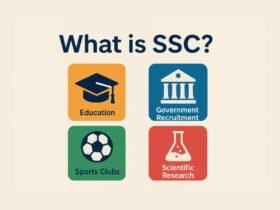Building a successful career in education is a journey that requires dedication, passion, and a clear understanding of your goals. The field of education is vast, offering a variety of roles that go beyond traditional classroom teaching. Whether you’re drawn to becoming an educator, administrator, or working in educational policy, the opportunities are diverse and fulfilling.
A career in education allows you to make a meaningful impact on the lives of students and contribute to the development of future generations. This guide will explore essential steps to help you build a successful and rewarding career in education.
1. Start with the Right Educational Foundation
The foundation of any successful career in education begins with the right educational background. Earning a relevant degree in education is often the first step toward entering the field. Most educators start with a Bachelor’s degree in Education, which provides the fundamental knowledge and skills needed for teaching. This degree covers essential topics such as child development, instructional strategies, and classroom management, preparing you for the challenges and rewards of working in education.
In addition to obtaining a degree, it’s important to gain practical experience through internships or student teaching opportunities. These experiences allow you to apply what you’ve learned in real-world settings, helping you to develop your teaching style and build confidence in the classroom. The combination of a strong educational foundation and hands-on experience is crucial for launching a successful career in education.
2. Explore Advanced Degrees
While a Bachelor’s degree is sufficient for many entry-level positions in education, pursuing advanced degrees can open up a wider range of career opportunities. For example, a Master of Arts in Teaching (MAT) can be a valuable asset for those looking to advance their careers. You might wonder, what can I do with a master of arts in teaching? The answer is that this degree can lead to various paths within the field of education, including teaching at higher levels, becoming an instructional coordinator, or moving into educational leadership roles.
An MAT typically focuses on enhancing your teaching skills, deepening your knowledge of educational theory, and providing specialized training in areas such as curriculum development or educational technology. By pursuing an advanced degree, you not only increase your qualifications but also position yourself for leadership roles that can have a broader impact on educational outcomes.
3. Gain Practical Experience
Gaining practical experience is essential for building a successful career in education. Whether you’re just starting out or looking to advance in your career, hands-on experience in the classroom is invaluable. Early in your career, seek opportunities to work as a teaching assistant, substitute teacher, or volunteer in educational settings. These roles provide a chance to observe experienced educators, learn classroom management techniques, and interact with students.
As you gain experience, consider taking on additional responsibilities such as leading extracurricular activities or participating in curriculum planning. These experiences can help you develop a well-rounded skill set and demonstrate your commitment to education. Practical experience not only enhances your resume but also gives you the confidence and competence needed to succeed in more advanced roles within the field.
4. Develop Strong Communication Skills
Effective communication is a cornerstone of success in education. Whether you’re teaching in a classroom, working with colleagues, or interacting with parents, strong communication skills are essential. As an educator, you need to be able to explain complex concepts in a way that is understandable and engaging for students. This requires not only clarity in your speech but also the ability to listen actively and respond to students’ needs.
In addition to verbal communication, written communication skills are also important. Educators often need to create lesson plans, write reports, and communicate with parents and administrators through email or other written formats. Developing strong communication skills ensures that you can effectively convey information, foster positive relationships, and create a supportive learning environment for your students.
5. Stay Current with Educational Trends
Education is a dynamic field that is constantly evolving. To build a successful career, it’s important to stay current with the latest trends and developments in education. This includes understanding new teaching methods, staying informed about changes in educational policy, and being aware of emerging technologies that can enhance the learning experience.
One way to stay current is by attending professional development workshops, conferences, and seminars. These events provide opportunities to learn from experts in the field, network with other educators, and gain insights into new educational practices. Additionally, joining professional organizations can help you stay connected with the broader educational community and access resources that support your ongoing learning and professional growth.
In conclusion, building a successful career in education requires a combination of dedication, continuous learning, and strategic planning. With the right approach, you’ll not only achieve your career goals but also make a lasting difference in the lives of your students.













